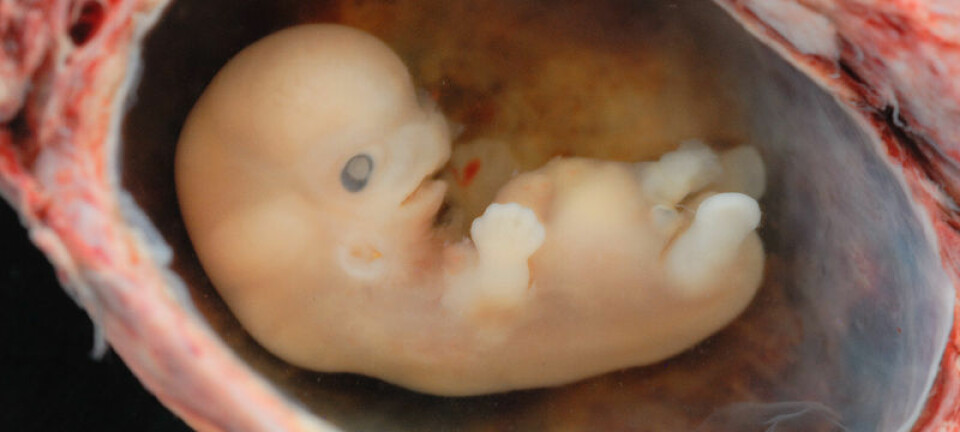An article from Norwegian SciTech News at NTNU

Breastfeeding protects mum’s heart health
Mothers who breastfeed are better protected from deadly cardiovascular disease than those who do not
Denne artikkelen er over ti år gammel og kan inneholde utdatert informasjon.
“It’s good for a mother’s heart to breastfeed,” says Tone Natland Fagerhaug, who recently completed her doctoral thesis at the Norwegian University of Science and Technology (NTNU).
Fagerhaug’s dissertation examined the association between breastfeeding and maternal heart health. Her conclusions were clear.
Benefits persist
Mothers who do not breastfeed their children have three times the risk of dying from cardiovascular disease compared to mothers who have breastfed for two years or more in total during their lifetime, Fagerhaug found.
But her research also showed that this benefit persisted until the women were 65 years old. This is the first study that has looked at breastfeeding and mortality from cardiovascular disease in industrialized countries. The data were taken from the second Nord-Trøndelag Health Study (HUNT2); Fagerhaug’s study looked at data from 20,000 women from the larger HUNT2 group.
Breastfeeding and maternal health are understudied

“There is convincing evidence that breastfeeding reduces the risk of breast cancer, but until now there has been little information about how breastfeeding can affect other aspects of the mother’s health,” says Fagerhaug.
She describes pregnancy as a stress test for the mother’s body.
The fats in a pregnant woman’s blood will increase dramatically, and she will also gain weight. At least part of this weight gain is belly fat, which is considered a health risk. A pregnant woman’s body also undergoes major changes in both blood pressure and sugar metabolism.
Fagerhaug’s studies supports the hypothesis that mothers who breastfeed return more quickly to their pre-pregnancy metabolism than women who don’t breastfeed.
Lower blood pressure and less obesity
“We do not know exactly what goes on in a woman’s body during lactation that affects her heart health over the long term, but just making milk consumes many calories per day," says Fagerhaug.
"Breast milk is also fatty and rich in cholesterol, all of which may be contributing factors.”
It is also known that breastfeeding involves interactions between a number of hormones. There is reason to believe that breastfeeding starts a hormonal chain reaction in the mother’s body that lasts for several years after the baby is born.
Even a little helps
Fagerhaug’s research showed that women who breastfeed have lower blood pressure, body mass index (BMI), waist circumference and fat content in the blood for many years after having given birth.
She also found that the longer the mothers breastfed, the lower their cardiovascular risk factors.
However, even women who had breastfed for a relatively short time had a more favorable risk profile in terms of cardiovascular disease than women who had not breastfed at all.
----------------------
Read the Norwegian version of this article at forskning.no
Translated by: Nancy Bazilchuk


































